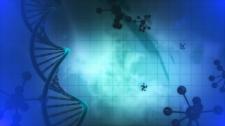Do Your Family Members Have a Right to Your Genetic Code?
By Emily Mullin,
MIT Technology Review
| 11. 22. 2016
When a woman gets her genome sequenced, questions about privacy arise for her identical twin sister.
In August 2015, Samantha Schilit went to her primary care doctor to get a blood draw. A PhD candidate at Harvard specializing in human genetics, she was itching to unlock the secrets of her genes with a test called whole-genome sequencing, which provides a full readout of a person’s DNA.
Patients must give their informed consent before undergoing whole-genome sequencing or any other genetic test. But there are no laws that restrict what patients can do with their own genetic information, or that require patients’ family members to be involved in the consent process. This raises questions about who owns an individual’s genetic code, since family members share many genetic traits and may harbor the same genetic abnormalities associated with certain diseases.
When Schilit got her test results back a few months later, she didn’t consider that her identical twin sister Arielle Schilit Nitenson, a PhD student in neuroscience at Brown University, would have concerns about the test. The two co-authored an article in...
Related Articles
By Arthur Lazarus, MedPage Today | 01.23.2026
A growing body of contemporary research and reporting exposes how old ideas can find new life when repurposed within modern systems of medicine, technology, and public policy. Over the last decade, several trends have converged:
- The rise of polygenic scoring...
By Stephanie Pappas, LiveScience | 01.15.2026
Genetic variants believed to cause blindness in nearly everyone who carries them actually lead to vision loss less than 30% of the time, new research finds.
The study challenges the concept of Mendelian diseases, or diseases and disorders attributed to...
By David Cox, Wired | 01.05.2026
As he addressed an audience of virologists from China, Australia, and Singapore at October’s Pandemic Research Alliance Symposium, Wei Zhao introduced an eye-catching idea.
The gene-editing technology Crispr is best known for delivering groundbreaking new therapies for rare diseases, tweaking...
By Josie Ensor, The Times | 12.09.2025
A fertility start-up that promises to screen embryos to give would-be parents their “best baby” has come under fire for a “misuse of science”.
Nucleus Genomics describes its mission as “IVF for genetic optimisation”, offering advanced embryo testing that allows...




